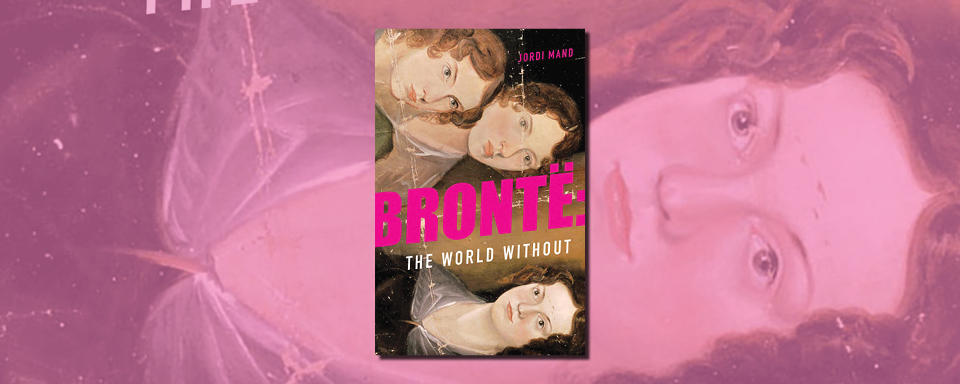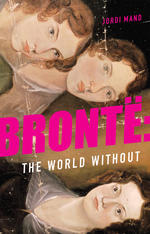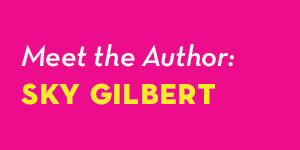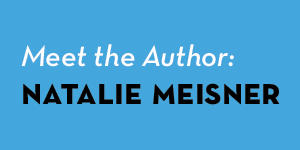
Taking destiny into their own hands
An interview with Jordi Mand on Brontë: The World Without
Before they were known by their real names, Charlotte, Emily, and Anne Brontë had to release their work under male pseudonyms: Currer, Ellis, and Acton Bell. Their family was in dire financial circumstances and they had no interest in working as governesses. So they took what they loved to do and turned it into a means to survive. Eventually, of course, they became literary pioneers, but it’s the in-between that exists in Jordi Mand’s Brontë: The World Without. Told over five days in the span of three years, Jordi illustrates what life was like for the three young writers, showing what it was like to be an ambitious woman in England in the 1800s, and how similar it looks to the struggles women face today.
We spoke to playwright Jordi Mand about what drew her to the lives of the Brontë sisters, her research process, how the experiences of the sisters connect to the present day, and what we can learn from them in the theatre industry.
How did you come to write this story? What was it that drew you to the Brontë sisters and this specific time in their lives?
Years ago, I stumbled on an article about the three Brontë sisters. At the time, I knew very little about them other than knowing a few of their books. But this article talked about how all three submitted their novels to be published and only two of them received an offer for publication. And the sister who had been spearheading the whole thing was the one whose work had not been accepted. I remember finishing that article and feeling like my heart was racing. I couldn’t stop thinking about what their house must have been like on the day that they received this news. For me, this event was so dramatic, complicated, awkward, and heartbreaking—key ingredients for a play.
And so, I started to research them and never looked back. The more I learned about the three sisters, their family, their work, and the time they lived in, the more obsessed I became… And I knew I had to write about them.
There was so much about their lives that I found to be compelling. As artists, they wrote in a way that depicted what society was like—specifically, how white women of their class were treated. They created heroines who were smart and industrious. Their stories showcased the vulnerability of women in their society and gave voice to concerns that were not being discussed. They were resilient, entrepreneurial, and ambitious. They came to understand that they would have to take their destiny into their own hands in order to see their dreams fulfilled. They were utterly determined to make something of their lives and use their talents to the fullest. They also had to deal with the fear and doubt that comes from trying to pursue greatness. They were forced to face rejection—over and over again. Despite how successful they were, each had to deal with failure in her own way.
As women, they dealt with the ongoing difficulty of pursuing their vocation while managing a household. They challenged the standards of marriage and expectations of childbearing within their race and social class when to do so did not even occur to most women. They lived their lives knowing full well that writing was not an encouraged profession.
As sisters, they were one another’s greatest support system and fiercest competition. They were witnesses to each other’s heartbreaks, accomplishments, failures, and losses. They were bound together by the tragedies of their family—having lost their mother, aunt, and two older sisters. They stood by each other as they cared for their father, brother, and one another.
How did you research the Brontë family? What stood out to you?
Well, I read their books and poetry over and over again. I read everything they wrote when they were young. They were quite prolific and started writing at a very young age. I read countless books written about them—about them as people and about their work. But my most favourite bit of research was traveling to Haworth, England, to visit the Brontë Parsonage Museum, the home the sisters lived in which has been turned into this incredible museum. The curators and team there spent hours with me answering all of my questions, going through archives, and giving me tours of the house. Being there was unbelievably emotional—especially having spent so many months beforehand being so immersed in their world. And then I got to spend time in the moors, the area around their house which was such a huge source of inspiration for them, and it was absolutely transformative.
So much has stood out about them, but one main thing was how modern all three of them felt to me. They were dealing with so many issues and situations that, sadly, women still have to deal with today. It was very illuminating. Obviously so much has changed since then. So much. But there are also so many things that are still too similar. Especially for women. From how women are treated in the arts, to how women are treated as entrepreneurs, to how women are expected to run a household.
Did the writing process show you any similarities or point you to any reflections on the Canadian theatre industry today? What can be done to further female representation—from artists and staff to the stories we tell?
It’s still hard for women to be produced in Canada. Yes, it’s getting better. But it’s still moving way too slowly. Also, women are often expected to only write about certain things whereas men seem to be given free rein to write about whatever they want. Also, I think women are reviewed more harshly by critics than men are. And all of this was the exact same for the Brontë sisters.
In terms of what can be done to further female representation—program plays written by women! Let those plays be about anything and everything. Hire women for all roles behind the scenes—directors, designers, crews, producers, administrators. Hire as many women as possible.
What do you want people to take away from this play?
For me, Brontë: The World Without is about what it means to want something more from your life. It’s about the pain and difficulties of being a family. It’s about the joy and sacrifices of being an artist. It’s about the complications and prejudices that come with being an ambitious woman. It’s about what it means to love, to lose, to win, and to fail.
What are you up to next? What have you been doing to keep yourself busy and content through the pandemic?
The last few months have been pretty unbelievable. I’m working on a new play. I’m the writer of the upcoming film adaptation of Harriet Alida Lye’s thriller, The Honey Farm. I’m working on the development of an original TV series that I’m writing. And I’m spending time with my 3-month-old daughter who was born right in the middle of the pandemic.
Want to read Jordi’s imagining of the Brontë sisters? Get your copy of Brontë: The World Without now!



Comments